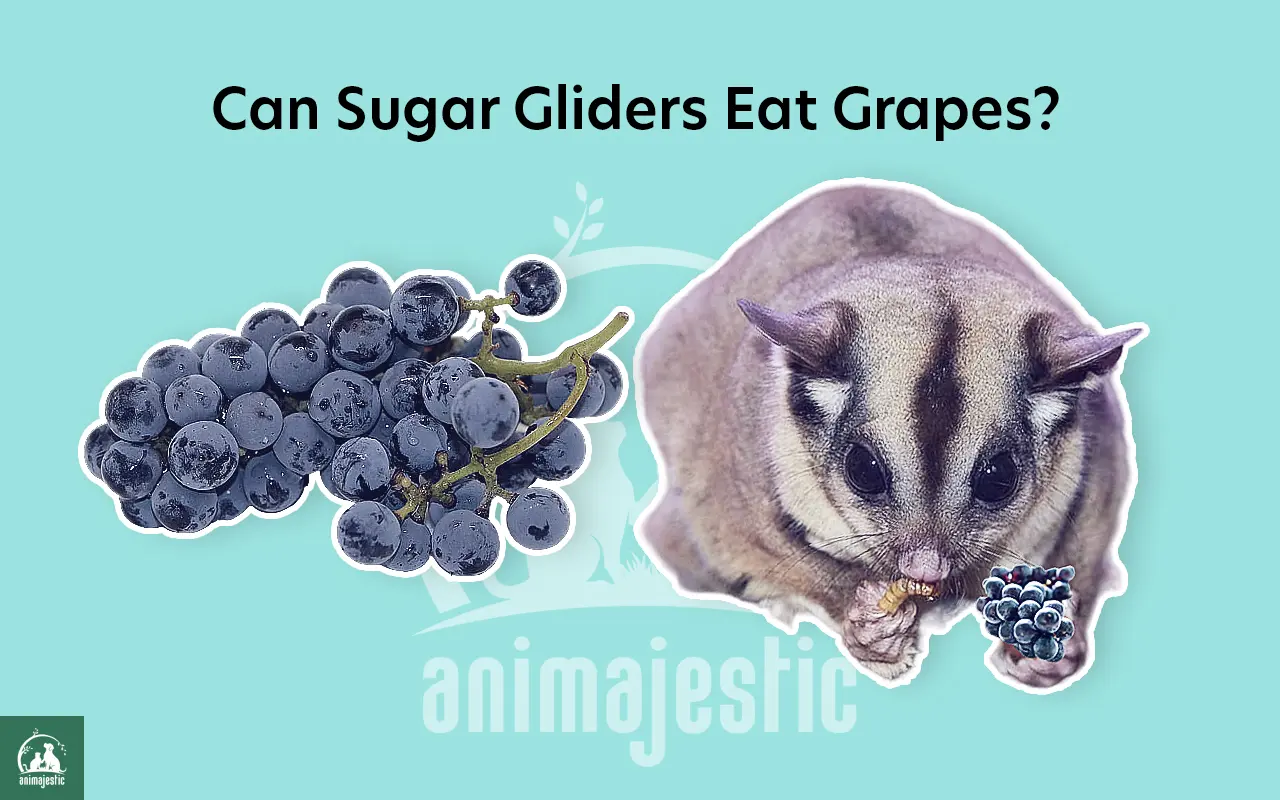As exotic pets, sugar gliders require a well-balanced and species-appropriate diet to maintain their health and well-being. This brings up the question: can sugar gliders eat grapes? Now, let’s explore where grapes fit into a sugar glider’s diet.
Can Sugar Gliders Eat Grapes?
Yes, sugar gliders can eat grapes, but they should be given in moderation and as a part of a balanced diet. Grapes are a great source of vitamins, minerals, and antioxidants, which can contribute positively to a sugar glider’s diet. However, there are some essential factors to consider when feeding grapes to your sugar glider.
Benefits of Grapes for Sugar Gliders
Grapes contain various nutrients that can be beneficial for sugar gliders:
- Vitamins and Minerals: Grapes are a good source of vitamins C and K, as well as minerals like potassium and manganese. These nutrients contribute to the overall health of sugar gliders, supporting their immune system, bone health, and metabolic functions.
- Antioxidants: Grapes are rich in antioxidants, particularly polyphenols such as resveratrol and flavonoids like quercetin and myricetin. These compounds help protect cells from damage caused by free radicals and oxidative stress. Antioxidants can support the overall health of sugar gliders and may help prevent certain diseases.
- Hydration: Grapes have a high water content, which can help keep sugar gliders hydrated. Proper hydration is essential for their overall health and well-being, as it aids in digestion, temperature regulation, and waste elimination.
- Fiber: Grapes contain dietary fiber, which is important for maintaining a healthy digestive system in sugar gliders. Fiber can help prevent constipation and promote regular bowel movements.
Precautions When Feeding Grapes to Sugar Gliders
While grapes can be a healthy treat for sugar gliders, there are some precautions to take:
- Moderation: Grapes should be given as an occasional treat rather than a staple food in a sugar glider’s diet. Overfeeding grapes can lead to an imbalanced diet, excessive sugar intake, and potential health issues such as obesity or diabetes.
- Size: Grapes should be cut into small pieces or even mashed to prevent choking hazards. Sugar gliders have small mouths and can easily choke on large pieces of food.
- Pesticides: Grapes can contain pesticides, which can be harmful to sugar gliders. Make sure to wash grapes thoroughly before feeding them to your pet, or opt for organic grapes to minimize pesticide exposure.
- Balanced Diet: A sugar glider’s diet should consist of a variety of fruits, vegetables, proteins, and insects to ensure they receive all the necessary nutrients. Grapes should only be a small part of their overall diet.
- Avoid Raisins: Raisins, which are dried grapes, should not be fed to sugar gliders. The drying process concentrates the sugar content, making raisins too high in sugar for sugar gliders to consume safely.
Feeding Techniques and Recommendations
When feeding grapes to your sugar glider, follow these recommendations:
- Wash grapes thoroughly: Ensure that all dirt and potential pesticide residues are removed before offering grapes to your sugar glider.
- Cut grapes into small pieces: To prevent choking, slice grapes into small, manageable pieces or mash them.
- Monitor consumption: Keep an eye on your sugar glider while they eat grapes to ensure they do not experience any difficulties or adverse reactions.
- Introduce gradually: When introducing any new food to your sugar glider’s diet, do so gradually. Start with a small amount and observe your pet’s reaction before increasing the portion.
- Frequency: Offer grapes as an occasional treat, no more than once or twice a week, to maintain a balanced and varied diet.
Conclusion
Sugar gliders can eat grapes as an occasional treat. Grapes provide essential vitamins, minerals, antioxidants, and fiber that can contribute to a sugar glider’s overall health. However, it’s important to feed grapes in moderation and take the necessary precautions to ensure your sugar glider enjoys this treat safely. Always maintain a balanced diet for your sugar glider and consult with a veterinarian if you have any concerns about their nutrition.
